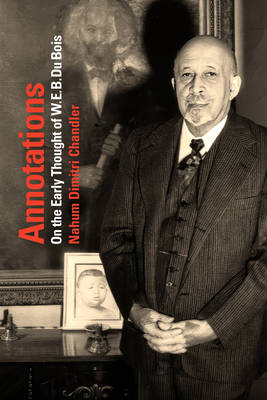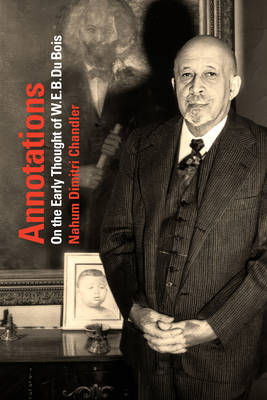
Door een staking bij bpost kan je online bestelling op dit moment iets langer onderweg zijn dan voorzien. Dringend iets nodig? Onze winkels ontvangen jou met open armen!
- Afhalen na 1 uur in een winkel met voorraad
- Gratis thuislevering in België vanaf € 30
- Ruim aanbod met 7 miljoen producten
Door een staking bij bpost kan je online bestelling op dit moment iets langer onderweg zijn dan voorzien. Dringend iets nodig? Onze winkels ontvangen jou met open armen!
- Afhalen na 1 uur in een winkel met voorraad
- Gratis thuislevering in België vanaf € 30
- Ruim aanbod met 7 miljoen producten
Zoeken
€ 152,95
+ 305 punten
Uitvoering
Omschrijving
In Annotations Nahum Dimitri Chandler offers a philosophical interpretation of W. E. B. Du Bois's 1897 American Negro Academy address, "The Conservation of Races." Chandler approaches Du Bois as a generative and original philosophical thinker-writer on the status and historical implication of matters of human difference, both the fact of and the very idea thereof. Chandler proposes both a close reading of Du Bois's engagement of the concept of so-called race and a deep meditation on Du Bois's conceptualization of historicity in general. He elaborates on the way Du Bois's thought in this address can give an account of the organization of the historicity that yields the emergence of something like the African American, at once with its own internal dimensions and yet also as an originary articulation of forces and possibilities that have world historical implications. Chandler refigures Du Bois's thought as a vital theoretical resource for rethinking our concepts of differences among humans and, so too, our understanding of modern historicity itself.
Specificaties
Betrokkenen
- Auteur(s):
- Uitgeverij:
Inhoud
- Aantal bladzijden:
- 200
- Taal:
- Engels
Eigenschappen
- Productcode (EAN):
- 9781478015796
- Verschijningsdatum:
- 12/05/2023
- Uitvoering:
- Hardcover
- Formaat:
- Genaaid
- Afmetingen:
- 152 mm x 229 mm
- Gewicht:
- 439 g

Alleen bij Standaard Boekhandel
+ 305 punten op je klantenkaart van Standaard Boekhandel
Beoordelingen
We publiceren alleen reviews die voldoen aan de voorwaarden voor reviews. Bekijk onze voorwaarden voor reviews.











